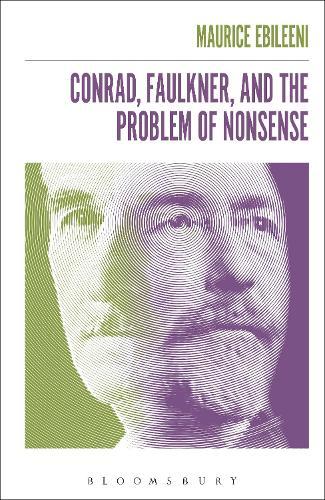Overview
Maurice Ebileeni explores the thematic and stylistic problems in the major novels of Joseph Conrad and William Faulkner through Jacques Lacan’s psychoanalytic theories. Against the background of the cultural, scientific, and historic changes that occurred at the turn of the 20th century, describing the landscape of ruins bequeathed to humanists by the forefathers of the Counter-Enlightenment movement (Schopenhauer, Kierkegaard, Nietzsche, Dostoyevsky, and Baudelaire), Ebileeni proposes that Conrad and Faulkner wrote against impossible odds, metaphorically standing at the edge of a chaotic abyss that initially would spill over into the challenges of literary production. Both authors discovered that underneath, behind, or within the intuitively comprehensible narrative layers there exists a nonsensical dimension, constantly threatening to dissolve any attempt at producing intelligible meaning. Ebileeni argues that in Conrad’s and Faulkner’s major novels, the quest for meaning in confronting the prospects of nonsense becomes a necessary symptom of human experience to both avoid and engage the entropy of modern life.
Full Product Details
Author: Dr. Maurice Ebileeni (Lecturer, Arab Academic College for Education, Israel)
Publisher: Bloomsbury Publishing Plc
Imprint: Bloomsbury Academic USA
Dimensions:
Width: 14.00cm
, Height: 1.10cm
, Length: 21.60cm
Weight: 0.354kg
ISBN: 9781501306594
ISBN 10: 1501306596
Pages: 176
Publication Date: 24 September 2015
Audience:
College/higher education
,
Tertiary & Higher Education
Format: Hardback
Publisher's Status: Active
Availability: Manufactured on demand

We will order this item for you from a manufactured on demand supplier.
Reviews
Conrad, Faulkner, and the Problem of NonSense is a novel contribution to the field of literary studies, which so far has not really taken to a Lacanian approach. Introducing a new approach with clarity, the book offers its readers an original methodology to tackle a literary text that is most welcome today. What is remarkable is that Ebileeni makes his points with clarity and simplicity, while at the same time refusing to give up on a firm methodology based on state-of-the-art theoretical considerations. Claude Maisonnat, Emeritus Professor of Contemporary Literature, Universite Lumiere Lyon 2, France In Conrad, Faulkner, and the Problem of NonSense, Maurice Ebileeni has written a sophisticated and original analysis of the ineffable, of what language is incapable of expressing directly, in several important works by Joseph Conrad and William Faulkner. Conrad was Faulkner's great mentor, and Ebileeni explores the surprising parallels among their themes and techniques. The theoretical foundations of the book - primarily Lacanian - are introduced with unusual clarity. Full of original insights for readers of Conrad and Faulkner, Conrad, Faulkner, and the Problem of NonSense is an intellectual treat, an appealing debut for an important young scholar. Richard Ruppel, Professor of English, Chapman University, USA
Author Information
Maurice Ebileeni is Lecturer in the English Department at the University of Haifa, Israel.




